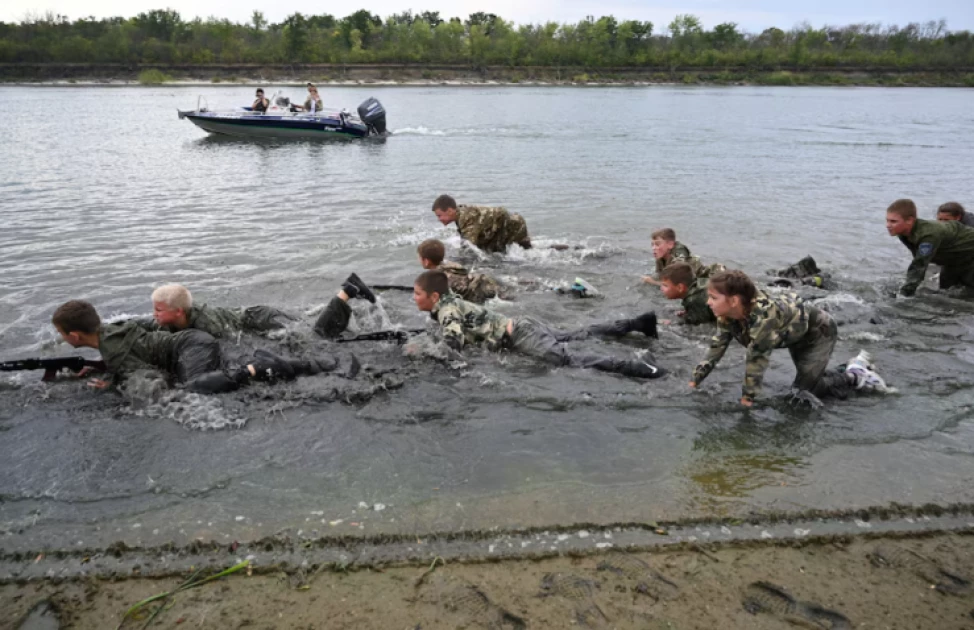'We threw hand grenades!' Russian kids as young as 8 get taste of military training

Students of the Don Cossack Cadet School of the Emperor Alexander III and members of the Cossack community undergo military training in the Rostov Region, Russia August 21, 2025. REUTERS/Sergey Pivovarov

Audio By Carbonatix
Scores of schoolchildren enjoyed a riverside adventure in
southern Russia this week, but it was no ordinary holiday camp.
With military instructors shouting encouragement, the 83
children, aged 8-17, took part in a "route march" on the shore of the
River Don, alternately running and crawling on their bellies across sand and
through shallow water.
Many wore camouflage uniforms. Some carried real weapons,
while others held toy replicas.
The exercise, supervised by soldiers who have taken part in
the war in Ukraine, was part of a wider trend in Russia to educate even
young children in skills to equip them for eventual military service.
One of the youngest participants, 8-year-old Ivan Glushchenko,
replied instantly when asked what had been the most memorable part.
"How we threw hand grenades and fired dummy
shots," he said.
The children were part of a group of cadets run by Cossacks
in the Rostov region, close to the border with Ukraine.
"Why I am here? It's because I want to tie my future
with military service. (I want) to serve my country and be loyal to my cause
until the very end," said one of the older boys, Anton.
Another, David, said the "route march" had enabled
him to test his own limits. "It allowed me to find out how strong my
willpower is."
Critics like the independent children's rights organisation
"Ne Norma" say putting youngsters through army-style training and
teaching them in school how to handle weapons and build military drones is a
form of indoctrination and propaganda.
Russian authorities say this kind of education serves to
instil healthy patriotism and build national resilience.
Among the instructors in Rostov was Alexander Shopin, a
Russian soldier who was wounded in Ukraine and is awaiting surgery. His middle
daughter was one of the participants.
"It's not the first time I've taken part in this route
march. I like it – to pass my experience to the children. You can see how a
family is forged out of them," Shopin said.
He said his daughter had enjoyed it, although she found it
hard. "To run as part of a team and not to let her mates down – this is
what she likes."
After the training, some of the children were clearly
buzzing with excitement.
"We made the run three times!" her friend said,
hugging her.
Instructor Vladimir Yanenko said the children drew
"understanding and knowledge" from the experience.
"Patriotic training is very important," he said.
"They don't want to hang out in back alleyways. It's much more fun for
them here."


Leave a Comment